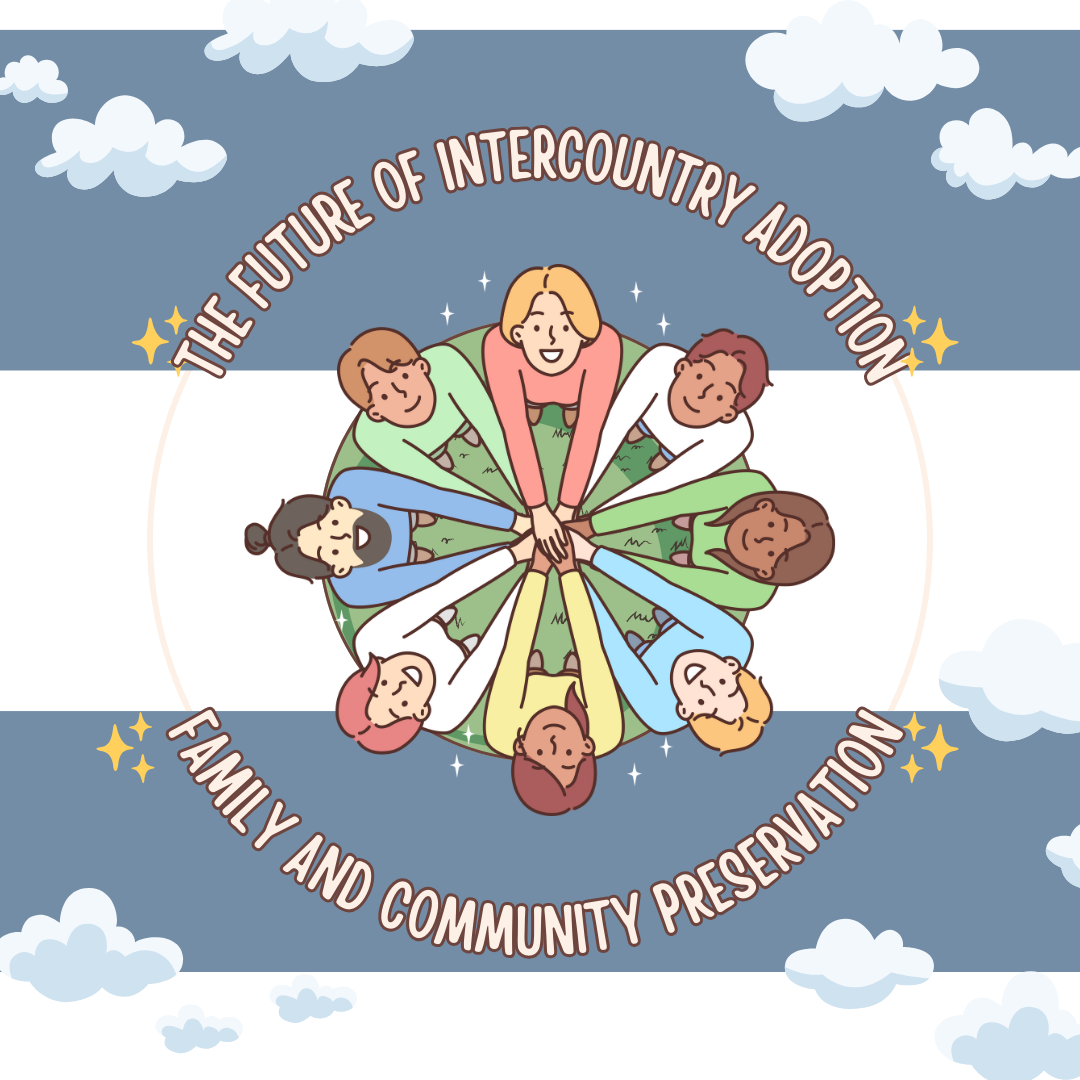Dies wurde von Lynelle Long beim Webinar zum Schutz der Identität von Kindern (CHIP) am Freitag, den 18. Februar 2022 vorgestellt. Das Thema des Webinars lautete: Achtung des Rechts des Kindes auf Identität bei internationalen Adoptionen (at 2:49:30 on the video recording).
In my humble perspective, I believe the future of intercountry adoption is slowly coming to its death. I am personally happy about this, as are a vast number of adult intercountry adoptees around the world. I recognise though that not all adoptees agree with my happiness nor want to see the end of intercountry adoption. The argument they pose is probably that we have gained and benefited much and why should we stop others from having the same?
I argue that we are actively robbing countries of their most valuable resource – their children – when we take advantage, with our privilege and resources, to gain from their vulnerabilities. We need to do better – do what’s ethically right, when we know in hindsight that the random positive outcomes do not justify the huge amount of trauma that has been inflicted on so many.
We have seen some countries in Europe start to take responsibility by independently investigating the history of intercountry adoption and come to terms with the wrongs done to so many. COVID has also created a natural dampener to the trade in children, but the efforts of intercountry adoptees and our allies has been building over the past decades to culminate into a worldwide recognition that intercountry adoption as a social experiment, has not been as successful as many hoped for.
If I were to ask myself what I think the future of intercountry adoption looks like, I couldn’t lie and pretend to uphold the fantasy so many seem to have with adoption. From the lived perspective, too many of us intercountry adoptees have struggled and suffered life long consequences of being robbed of our origins, our kin, our country, culture, and language .. it is time we take an honest and critical look at what intercountry adoption truly does. It is the ONLY alternative care option that proactively severs our right to identity and family relations — except in the cases of a few countries (Vietnam, Belgium and France) who allow Simple adoption to exist .. but in reality, it is extremely rare to have a Simple intercountry adoption.
I can only gauge the future and what it brings, from where we have shifted and moved in the past 24 years that I’ve been actively involved. I have seen the massive change that my adoptee community has undergone in the 24 years I’ve been involved:
- From being completely isolated from each other, to massively connected now!
- From being in the fog, to totally awakened to the reality of the structures that have created our lives.
- From relying on dodgy fabricated paperwork, to embracing DNA technology because it doesn’t lie.
- From not wanting to engage in the politics, to now fully engaging and seeking / demanding engagement with government and authorities.
- From not understand our rights, to now finding pathways to uphold our rights through the laws and demanding justice and reparation.
This is what excites me the most .. seeing the many adoptees demanding justice who are inspired by the success of the pioneers before them – adoptees like Patrick Noordoven who have fought the lack of legal pathway, studied the laws, faced the courts and created a legal pathway to demand justice and access to our truth – our right to identity. We need more of this to happen en-masse around the world!
Then what we are starting to see right now, in the past few years, is that some governments are recognising that they need to better protect themselves because they are realising they are participating in an activity and system that actively robs us of our rights – our rights to identity, origins and family. Once more governments realise the risk they bear, I believe we will see intercountry adoption become almost non existent because it’s too risky, too costly!
Intercountry adoption has always been about money: who has it, who doesn’t, who doesn’t want to lose it, who can’t afford to take the risk. While the risk in intercountry adoption was once historically gauged as low, governments and authorities supported the demand for children – but the tide on that sentiment has turned and there is no going back! I do believe one day we will look back historically on this huge social experiment called intercountry adoption and it will eventually be acknowledge on a global scale, that it was never in our best interests to be removed from our country, culture and origins and add to our traumas.
Hand in hand with this, I’m excited to see some governments start to recognise our adoptee needs and rights! In Australia we’ve been one of the few countries to be given a funded free mental health counselling service and we had a free search n reunion service. Both of these should be a minimum and a mandatory service in all post adoption for every adopting and sending country. Some countries are talking to me about our Australian model and I know other countries are starting to provide either one or both of these services.
But while I celebrate the shifts in some progressive countries, let’s not forget our families of loss still barely have any rights, and usually no access to free counselling or a searching service. I hope in the future we will start to see this change. The voices of our families of origins is still largely unheard, ignored, denied. We have to change that!
I hope intercountry adoption will become only a last resort option, as originally intended under the The United Nations Convention on the Rights of the Child (UNCRC).
Recommended Reading
Patrick Noordoven’s Thesis: Intercountry Adoption and the Right to Identity

Hinterlasse eine AntwortAntwort abbrechen